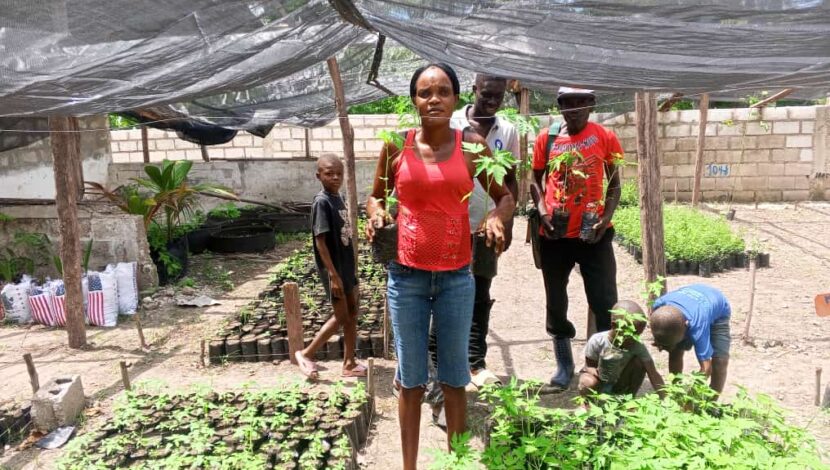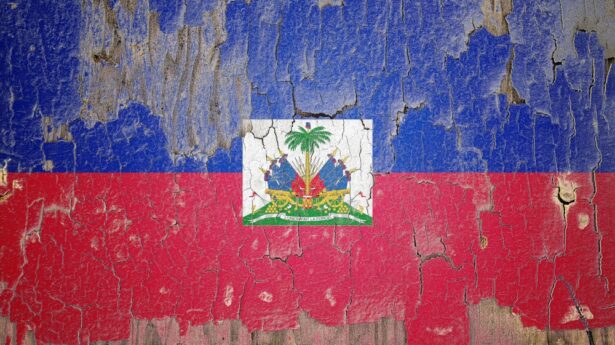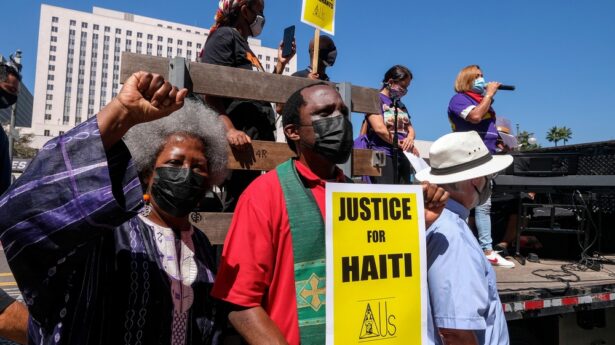The Unitarian Universalist Service Committee advances human rights through grassroots collaborations.
Haiti’s New Leadership Highlights the Urgent Need for Gender Representation

By on October 11, 2024
On May 28, Haiti’s Transitional Presidential Council re-elected former Prime Minister Garry Conille to lead the country through 2026. No women were interviewed for this position—hardly surprising given that the council’s voting membersare all men (one woman, Regine Abraham, is a non-voting observer).
Although the vote was a positive move towards restoring democracy, human rights, and stability after years of crisis, the council still has much to achieve. This is especially true when it comes to prioritizing women’s empowerment and addressing gender-based violence. At a time when Haiti is seeing a growing pattern of human rights violations disproportionately affecting women and girls, women’s voices and representation are needed more than ever.
Notwithstanding their current underrepresentation in government, women have played important roles in Haitian history since the Haitian Revolution in 1791. Haitian women have served at the country’s highest levels, including as provisional presidents, Supreme Court Justices, mayors, ambassadors, and government ministers.
Today, Haitian women and girls are on the front line of the crisis as community leaders, first responders, and, disproportionately, as survivors. A recent report by the UN revealed the alarming living conditions and lack of security experienced by women and girls in Haiti. According to a separate study by Global Initiative, 80 percent of Haitian women have reported gender-based violence, including sexual violence and gang rape. Sadly, those numbers continue to rise.
As the transitional council starts making decisions to restore stability to the country, it should recognize and address the lack of female representation in Haiti’s political leadership. This sidelining of women is not just a violation of their rights but also a missed opportunity to harness the perspectives and leadership of women in addressing Haiti’s broader challenges. Women are often in the best position to craft policies that address gender-based violence, economic inequality, and other issues disproportionately affecting women and girls.
Today, many of the strongest advocates for Haitian women’s rights are civil society organizations that support those affected by violence and inequality. These organizations, often led by women, work tirelessly to fill the gaps left by the government’s failure to protect its citizens. From providing shelter and legal assistance for survivors of gender-based violence to raising awareness about the importance of political participation, Haitian civil society groups play a vital role in the fight for gender justice.
UUSC works closely with several Haitian grassroots partners, each crucially involved in advancing human rights and justice for directly impacted communities, particularly women. These include:
The Dominican Republic says it plans to expel as many as 10,000 Haitian migrants per week, despite the United Nations call to end forced returns to Haiti amid a surge in gang violence. Haitian migrant women who are pregnant or who have recently given birth in the Dominican Republic are being violently targeted by DR officials. GARR is preparing to welcome these returnees, especially women who will need support reintegrating, finding shelter, and urgent medical attention.
MPP has a project giving some peasant farmers access to financial institutions for the first time by launching a small loan program, which are self-managed and self-capitalized savings groups that use MPP members’ savings to lend to each other. Peasant farmer women have especially benefited since it gives them greater independence and autonomy, which they had previously lacked.
The Platform of Haitian Human Rights Organizations (POHDH)
POHDH has implemented a community-based referral program. This program aims to provide legal aid, direct psychosocial support, and medical assistance to the community. Given their higher risk of violence, women and girls have been the primary beneficiaries.
UUSC is partnering with grassroots groups to support a Haitian-led solution to the crisis. If you’d like to help, please click here to donate to our emergency response fund for Haiti.
Image credit: Mouvman Peyizan Nasyonal Kongre Papay (MPNKP)

